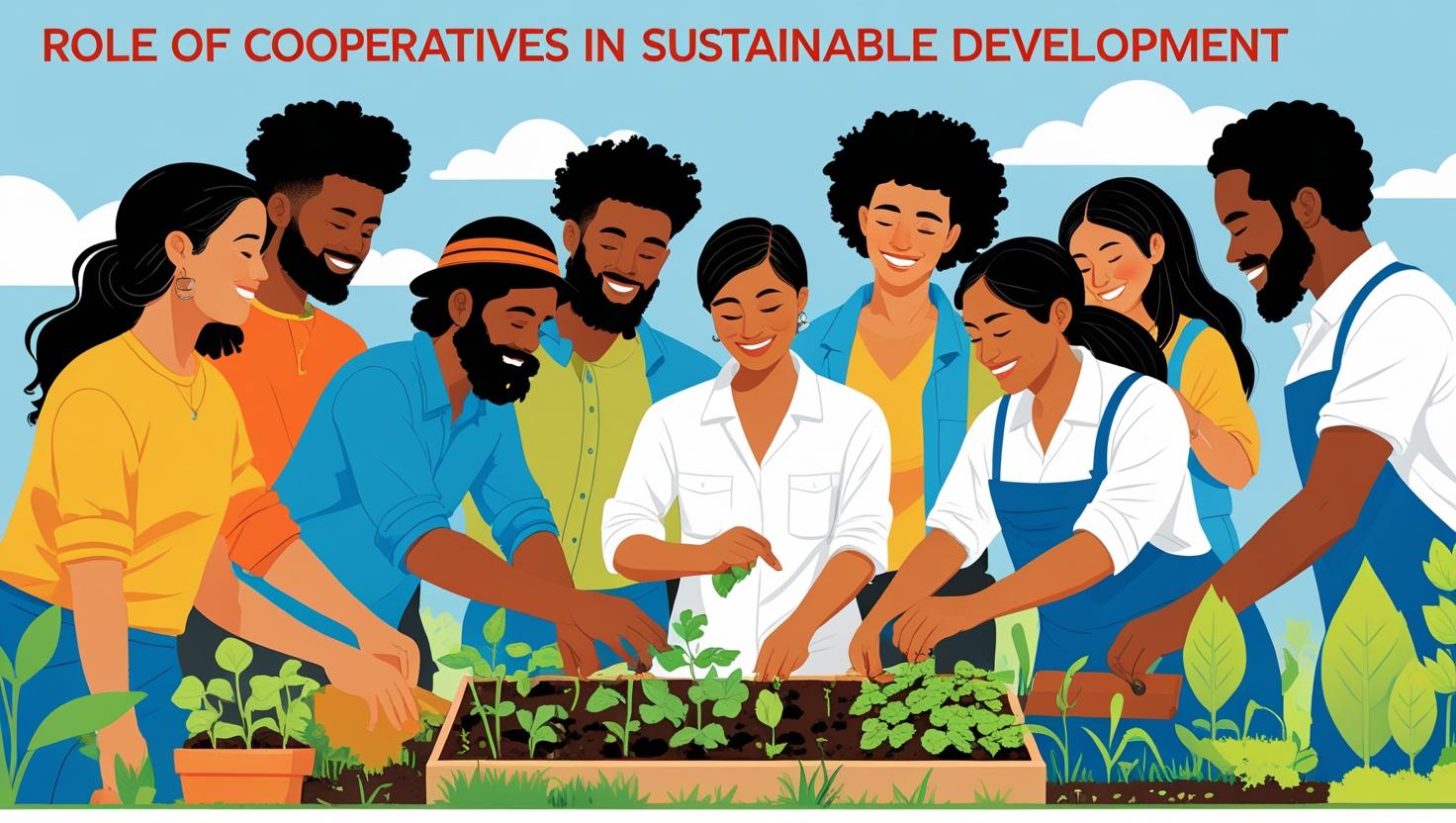Cooperatives play a pivotal role in advancing sustainable development by combining economic goals with social responsibility and environmental stewardship. A cooperative is a voluntary association of individuals united to meet common economic, social, and cultural needs through a jointly owned and democratically controlled enterprise. Rooted in principles of mutual help, equity, democratic participation, and community engagement, cooperatives offer a unique model of development that contrasts sharply with profit-centric corporate structures. Their participatory nature makes them particularly effective in promoting sustainable practices that are inclusive, people-oriented, and ecologically responsible.
One of the most important contributions of cooperatives to sustainable development lies in their economic inclusivity and empowerment of marginalized communities. In rural and underdeveloped areas, where access to markets, credit, and employment is limited, cooperatives provide a collective platform for individuals—especially small-scale farmers, artisans, and women—to pool resources, share risks, and enhance bargaining power. Agricultural cooperatives, for instance, allow farmers to access better quality seeds, training, and markets, while also ensuring fair prices for their produce. This not only improves livelihoods but also reduces rural poverty, one of the key targets under the Sustainable Development Goals (SDGs).
Cooperatives also contribute significantly to environmental sustainability by encouraging eco-friendly practices and renewable resource management. Many agricultural cooperatives are now promoting organic farming, sustainable irrigation techniques, and biodiversity conservation. Similarly, energy cooperatives, which are gaining traction in Europe and parts of India, are engaging communities in the production and management of renewable energy sources such as solar, wind, and biomass. These initiatives reduce reliance on fossil fuels and promote decentralized, community-based energy solutions that are cleaner and more resilient.
Another critical area where cooperatives support sustainable development is social inclusion and gender equality. Women’s cooperatives and self-help groups have empowered millions of women by giving them access to income-generating activities, credit facilities, education, and leadership opportunities. In countries like India, the dairy cooperatives under the National Dairy Development Board (NDDB) have been instrumental in empowering rural women economically and socially, thereby contributing to SDG 5 (Gender Equality).
Moreover, cooperatives operate under a democratic governance structure that emphasizes transparency, accountability, and collective decision-making. This enhances local participation and ownership in development processes, ensuring that solutions are tailored to the specific needs of communities. It also helps build social capital and fosters a culture of cooperation and solidarity, which are essential for long-term development and peace.
In the health and housing sectors, cooperatives have made significant inroads by offering affordable services. Health cooperatives run community clinics and awareness programs, particularly in areas with limited access to public healthcare. Housing cooperatives, especially in urban slums, provide affordable housing options through collective savings and planning, thereby improving living conditions and community health.
Despite their many benefits, cooperatives face several challenges, including lack of access to capital, inadequate professional management, limited market access, and regulatory constraints. To strengthen their role in sustainable development, it is essential that governments provide supportive policy frameworks, access to finance, and capacity-building programs. International organizations, including the International Labour Organization (ILO) and the United Nations, recognize the value of cooperatives and advocate for their integration into national and global development strategies.
In conclusion, cooperatives offer a sustainable, inclusive, and participatory model of development that aligns closely with the objectives of the United Nations’ Sustainable Development Goals. By promoting economic equity, environmental responsibility, and social solidarity, cooperatives serve as powerful instruments for building a more just and sustainable future, especially in contexts where traditional market mechanisms and state interventions fall short.








Leave a Reply